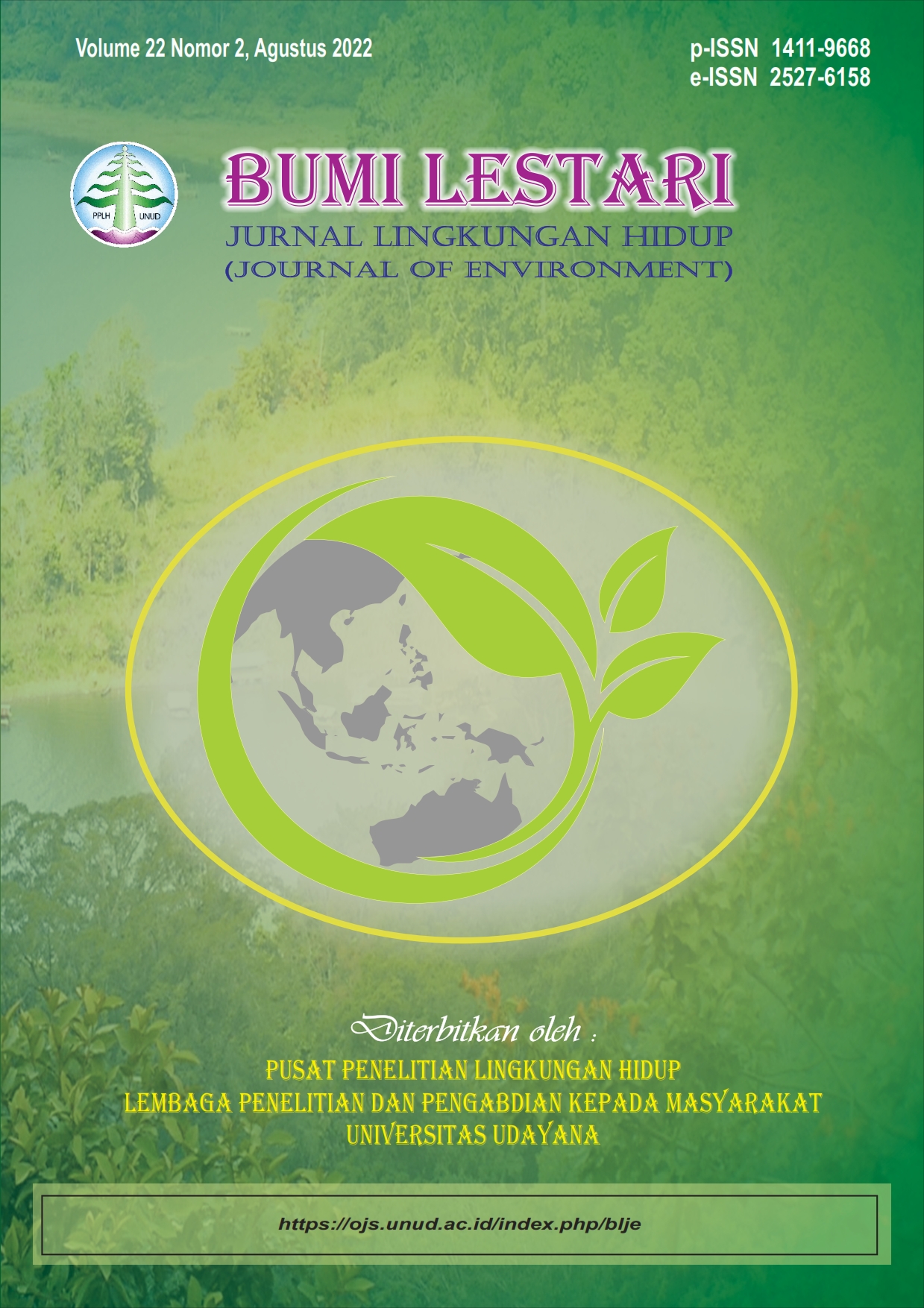Inventarisasi Dendrobium linearifolium Teijsm. & Binn. Dan Pohon Inangnya Di Kawasan Desa Lemukih, Buleleng - Bali
Abstract
Dendrobium linearifolium Teijsm. & Binn. or "shrimp orchid" is one of the epiphytic orchids that is increasingly rare, therefore ex situ conservation is necessary. The success of ex situ orchid conservation requires knowing the types of its host trees. The study aimed to carry out an inventory of D. linearifolium and its host trees in the Lemukih Village Area, Buleleng – Bali. An explorative method was applied in the research. There were 63 individuals of D. linearifolium found in Lemukih Village. The highest number was present at an altitude of 500-700 meters above sea level (masl) (35), followed by those at 901-1200 m apl (22) and at 701-900 m apl (6) respectively. Meanwhile, 17 host trees were obtained which consisted of 10 species and eight families. Most D. linearifolium were found on Syzygium aqueum (Burm.f.) Alston (11), followed by those on Tamarindus indica L. (10), Helicia robusta (Roxb) R.Br. ex Blume (10) and Coffea canephora L. (7).
Downloads
Authors who publish with this journal agree to the following terms:
- All articles published by Bumi Lestari Journal of Environment and Environmental Reseach Center Udayana University are made available under an open access license worldwide immediately. This means everyone has free and unlimited access to the full-text of all articles published in Bumi Lestari Journal of Environment, and everyone is free to re-use the published material given proper accreditation/citation of the original publication. Open access publication is supported by authors' institutes or research funding agency by payment of a comparatively article processing charge for accepted articles (See Author Fees). Bumi Lestari Journal of Environment and Environmental Reseach Center Udayana University publish articles under the Creative Commons Attribution License.
- Authors are able to enter into separate, additional contractual arrangements for the non-exclusive distribution of the journal's published version of the work (e.g., post it to an institutional repository or publish it in a book), with an acknowledgement of its initial publication in this journal.
- Authors are permitted and encouraged to post their work online (e.g., in institutional repositories or on their website) prior to and during the submission process, as it can lead to productive exchanges, as well as earlier and greater citation of published work (See The Effect of Open Access).





